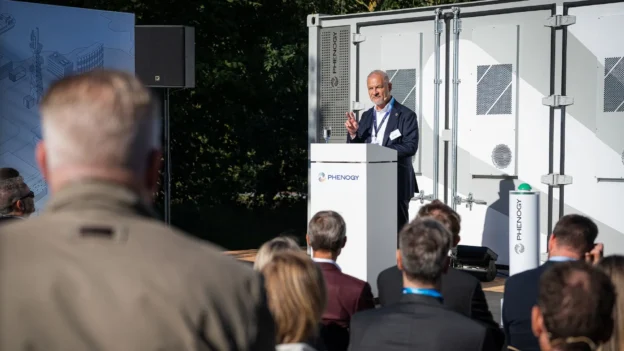The PHENOGY 1.0 storage system is now operational in the German city of Bremen, marking the commercial debut of the sodium ion technology. sodium ion technology in large-scale sodium ion technology in large-scale applications on the European continent. Developed by the Swiss PHENOGY AG, this system represents a significant step towards a decentralized and robust energy infrastructure.
Sodium BESS system as a sustainable alternative to lithium
In the face of geopolitical tensions and growing demand for lithium, sodium-ion technology presents itself as a safe and environmentally more viable option. PHENOGY batteries offer high thermal stability, lower risk of fire and long ultimate life, even under extreme conditions, making them attractive for the industrial sector and critical infrastructures.
The system features air cooling, a modular design and a focus on life-cycle efficiency, allowing maintenance to be minimized and operational performance to be maximized.
Network and non-network applications
PHENOGY 1.0 is designed to adapt to a variety of uses: from microgrids and remote areas, to the optimization of self-consumption in industries and charging stations for electric vehicles. In addition, it can be integrated as a backup system in hospitals, data centers or telecommunications facilities, strengthening resilience to outages or extreme events.
The initial deployment in Bremen is intended as a demonstration of technical and commercial feasibility, with a view to progressive expansion throughout Europe.
Headquartered in Lucerne with subsidiaries in Germany and the United States, PHENOGY AG has been working since 2019 on advanced storage solutions. Its collaborative network includes players such as Exentis Group AG and research centers of the Fraunhofer Battery Alliance. Its vision is clear: energy independence based on clean, reliable and locally manufacturable technologies.
Source and photo: PHENOGY

